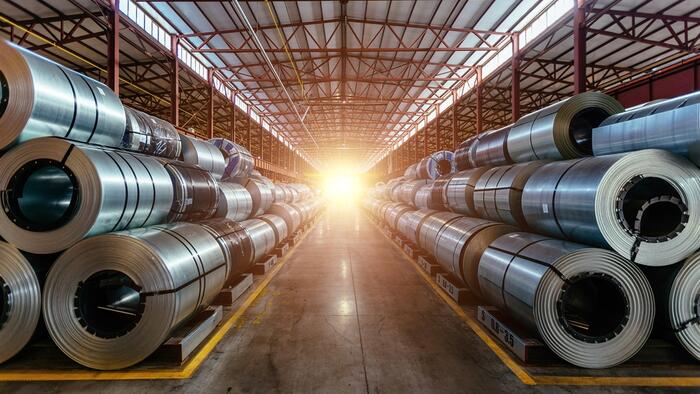


By Michael Every of Rabobank
Yesterday’s JPY slump from 158 to 160, surge to 155 on BOJ intervention, and stop over 156 underlines how volatile markets are as long-run fundamentals finally reach tipping points. Tomorrow’s FOMC decision should make that clear for all asset classes: especially with the Treasury’s quarterly refunding announcement the same day, and as the US borrowed a net $748bn in Q1, expects another $243bn in Q2, $41bn higher than seen in January due to lower receipts, and then $847bn in Q3. As a potential warm-up of sorts, albeit due to traditional overbought dynamics, was a 15% collapse in cocoa.
Today we have a sizeable packet of economic data: we already saw the Chinese official manufacturing PMI at 50.4 vs. 50.3 expected and 50.8 last month, and services at 51.2 vs. 52.3 consensus and 53 in March. Will the rest of today’s numbers show disinflation, inflation, or stagflation? That answer is fundamentally related to a subject which markets understand little and dislike lots: the intersection of political economy and the global economic architecture reductively known as either “geopolitics” or “populism”. There, we are also reaching tipping points.
But how could Europe do Brown’s Green Keynesianism, with expanded issuance of Eurobonds to fund vast fiscal deficits, without higher inflation? And, absent protectionism, how does it do it without importing the key inputs from China, so running large balance of payments deficits? Moreover, does mass immigration not lower wages or push up rents and house prices via supply vs. demand, as Marx argued, and voters see around them? Must governments boost investment to reduce housing supply pressures (how?) and regulate for higher wages (how?) and build Green Keynesianism and rearm Europe? That implies double-digit fiscal deficits as far as the eye can see. Absent new, hybrid tighter AND looser fiscal-and-monetary policy to match domestic demand to new domestic supply, with inflationary tariffs and industrial policy, that backdrop implies a drift towards becoming a deindustrialised, macro-destabilised, stagflationary emerging market-style economy that certainly produces demagogues.
Allow me to share two related quotes from Classical ‘free market’ economists that are likely to upset Stiglitz and Brown as much as they do those who think we live solely in financial times:
“If any particular manufacture was necessary, indeed, for the defence of the society, it might not always be prudent to depend upon our neighbours for the supply; and if such manufacture could not otherwise be supported at home, it might not be unreasonable that all the other branches of industry should be taxed in order to support it.” – Adam Smith, The Wealth of Nations (Book IV, Chapter V)
- * *
“It would undoubtedly be advantageous to the capitalists of England, and to the consumers in both countries, that under such circumstances, the wine and the cloth should both be made in Portugal, and therefore that the capital and labour of England employed in making cloth, should be removed to Portugal for that purpose... Experience, however, shews, that the fancied or real insecurity of capital, when not under the immediate control of its owner, together with the natural disinclination which every man has to quit the country of his birth and connections, and entrust himself with all his habits fixed, to a strange government and new laws, check the emigration of capital.” - David Ricardo, ‘Principles of Political Economy and Taxation’ (Chapter VII: ‘On Foreign Trade’)
That, dear readers, is the sound of the two great ‘free market’ and ‘free trade’ champions supporting protectionism for national security purposes.
We have long lived in an environment where central banks saying “whatever it takes” was what mattered most to markets (apart from playing ‘higher/lower’ on a daily basis, without which there can be little to do). A well-known idiom for doing whatever it takes is to ‘beg, borrow, or steal’. When looking at China’s mercantilist EV --and steel-- production, as just two examples, and the geopolitical / national security backdrop they are tightly wrapped up in, then the choice of outcomes for Western economies is abundantly clear for those who want to see it:
Beg, borrow, or steel – literally and metaphorically.
The first and second choices imply short-term market-friendly disinflation, then followed by long-term EM-style stagflation. The third choice implies near-term inflation and radical policy framework and market shifts, if done correctly, then disinflation, and near and long-term stagflation if done wrong.
Which will it be?
